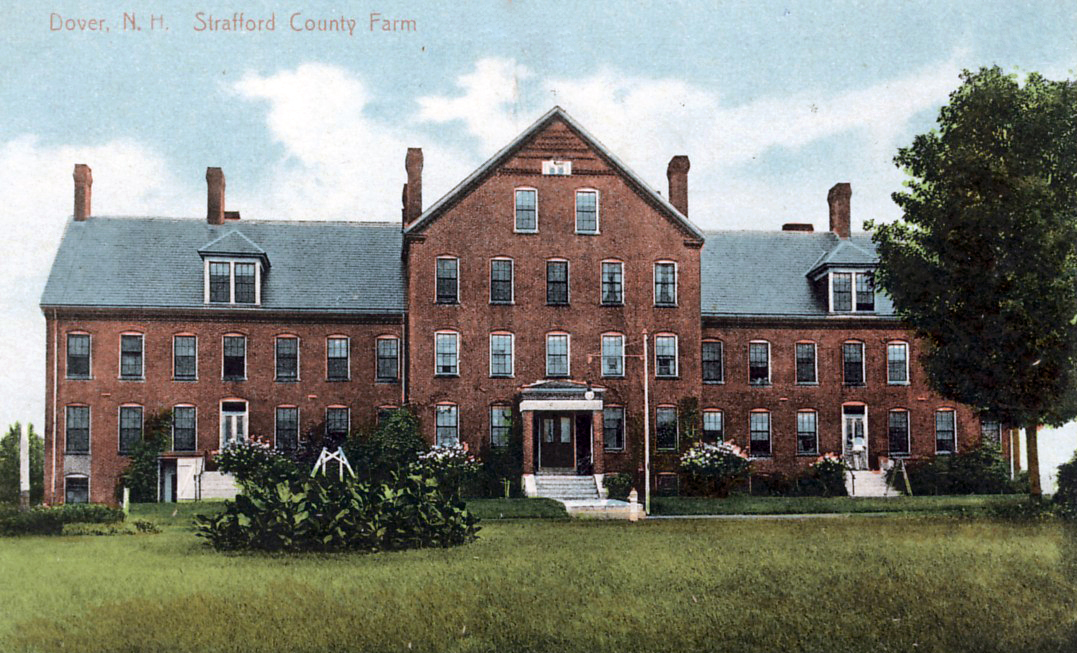Disclaimer
The Dover Public Library website offers public access to a wide range of information, including historical materials that are products of their particular times, and may contain values, language or stereotypes that would now be deemed insensitive, inappropriate or factually inaccurate. However, these records reflect the shared attitudes and values of the community from which they were collected and thus constitute an important social record.
The materials contained in the collection do not represent the opinions of the City of Dover, or the Dover Public Library.
Strafford County Farm

In the beginning of Strafford county there were not many poor folks who had to be cared for at the public expense; here and there, now and then, there was one and all such were cared for in private families. As the years went by conditions changed; town paupers began to appear; soon they became so numerous that each town was compelled, by law, to provide a “Poor Farm” and pay a man and his wife to manage it, and take care of all the town paupers. Then ensued a period of hustling by the selectmen of each town to “shunt” the paupers onto other towns of the county whenever possible. But as a general thing the poor on these farms were well cared for, had plenty to eat and drink, perhaps too much cider at times, and plenty of clothing to keep them warm in the winter. This arrangement continued for many years. But all the time the selectmen kept a sharp outlook at the ancestry of each pauper and shoved as many of them as possible onto the county for support. The result of this procedure was that counties felt obliged to establish county farms where they could properly care for their poor, instead of paying the various towns to do it. In fact the conclusion was reached that the towns charged the county too much for board and lodging. The outcome was that in 1886 the Legislature authorized the counties to purchase farms and fit up houses to properly care for the support of the “county paupers”, instead of paying the towns for doing it.
From “The County Almshouse” in The History of Strafford County New Hampshire and Representative Citizens by John Scales, c. 1914.
This historical essay is provided free to all readers as an educational service. It may not be reproduced on any website, list, bulletin board, or in print without the permission of the Dover Public Library. Links to the Dover Public Library homepage or a specific article's URL are permissible.
